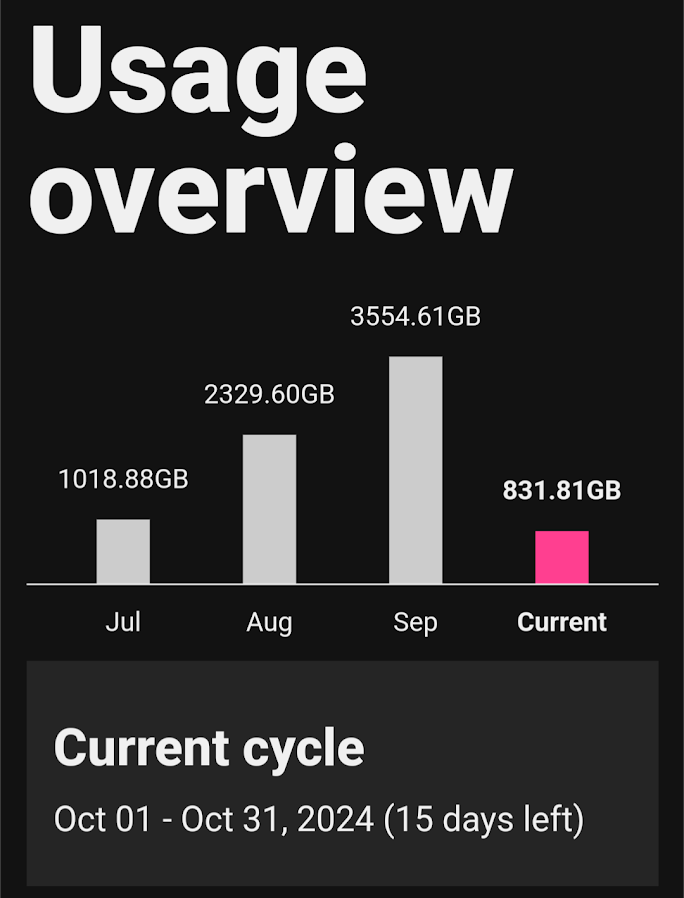None of this would be a problem if the government didn’t sell us out for what we already paid for and allowed these vultures into the system. It should have be national from the start. It costs them about nothing to have data run through those lines. All those caps exist purely to garner profit.
Mostly correct take IMO. I don’t blame ISPs for trying. I blame government (and not necessarily just federal) regulations/regulators for allowing it.
I grew up in NY. We paid a boatload in taxes to make fiber happen everywhere. IT. NEVER. HAPPENED.
NY is strongly Democrat. Acting like Republicans are solely the problem is asinine, and nothing stops states from enacting their own laws within the state. If California and NY made it happen. Guess what would basically happen throughout the whole country?
Yeah point to me where I said this was the fault of the Rubes? Because I didn’t say that. This was a joint captilistic operation to severe untold amounts of wealth from the working class. You paid all them taxes and nothing happened because the ISPs decides to pocket the public funds instead of doing anything and the government let them.
Yeah point to me where I said this was the fault of the Rubes? Because I didn’t say that.
I didn’t say you did… But the original article DOES try to paint it all on the Republicans. You know…
FCC Republican opposes regulation of data caps with analogy to coffee refills
I was taking your point and adapting it specifically to my thoughts on the original article.
I can only agree with the original article. The internet is a series of tubes.
Nah it’s more like a Starbucks
I said that because that was a Republican argument against Net Neutrality a little while back. Hmm, why are Republicans always against Net Neutrality? Hmm…
I would just say, I do blame ISP’s for trying. It’s unethical to try and squeeze every cent out of your customers, community and country. It’s never just “business”. Businesses are operated by people while exploiting people. It’s not a cold hearted machine doing the thinking, it’s normal people making these unethical decisions.
There’s a better idea really. Let the government not take money from the budget on infrastructure. Let it not give that money to companies, whatever the conditions.
Let it just fine to the ground those ISPs who prevent competition in their areas.
You know, sometimes you only need a gun and can do without that kind word.
It’s a profitable business, so if competitive environment is created, there will be infrastructural improvements.
It’s not government’s job to directly finance private businesses.
Naw, last thing I want is the government running our internet. Hell, it would have never kicked off 30 years ago if not for private enterprise. Back then your average Joe knew jack about this new “information superhighway”. Voters would have never agreed to fund it, let alone blow it up as fast as the capitalists did. And yes, we’ve entered the “last stage” of that particular game. Enshitiffication is well under way.
As of 10-years ago or so (thoughts?), internet access is a need. Not as important as power or water, but it should clearly be regulated like a public utility. I’ve worked for a few ISPs, so I know the devil in the details, but:
- ISPs should be mandated to provide for rural customers at the same terms as urban folks.
- Local governments, even states, should be shut out of decisions concerning competition. If a competitor can build new plant, or light up dark fiber, they can go for it.
- Provide base-level service as a welfare benefit. Access is that important. Try finding a job without it.
tl;dr: Government’s role is to dial it in, not take it over.
Where do you think the Internet came from? It was a government project that began as Arpanet. And we would never have had it opened to the public if it wasn’t for Al Gore.
We can also thank Tim Berners-Lee for giving us the WWW
Yeah I can’t agree with that after decades of ISP dick jacking, public theft, and absolute neglect. They may have burned bright but they also burned fast. Internet service is such bullshit now when it could just be a utility bill, and we can’t even get at that cause utilities are fucked private corpos too trying to ratfuck the system so they can continue to charge plebs for energy we have figured out how to capture for free so now we all have to die so some silver spooned diaper can continue to get his.
Private enterprises pocketed the money we gave them, and didn’t provide what they promised.
Fuck the corporations and their bootlickers.

What a ridiculous take, tax payers ABSOLUTELY DID PAY FOR IT! WTF?
i currently have one of the few municipal Internet plans in the United States.
best Internet I’ve ever had. gigabit symmetric fiber for a flat $60/mo. no fees, no outages, no data caps.
during the one outage i experienced in the three years I’ve had them i was quickly able to find multiple places to see status updates about the hardware issue they had and it was fixed in under an hour.
they also have a 2.5 gig and a 10 gig option for reasonable prices. I don’t think many other companies even offer anything above 1 gig outside of business packages.
it will be difficult for me to move anywhere else. with the work that i do this has been life-changing. come to Longmont Colorado, we have good Internet, amazing mountain sunsets, and lots of tacos.
i love my government Internet. it’s one of the biggest things keeping me here.
This is a bad take. Several cities in my state banded together to create a municipal fiber network called UTOPIA. The fiber is owned by the cities that bought in and is used by several different ISPs. The ISPs pay UTOPIA for access, and then they have to compete with each other for subscribers based on performance, features, and cost. Like, there’s genuine market competition for internet! If the state owns the infrastructure and then forces the playing field to be level, then everyone benefits. People in the cities with UTOPIA got fast fiber internet waaay faster than anyone else, they have a plethora of choices (want a static IP and a business plan in your residence? There’s an ISP that sells that!) at great prices, ISPs get access to subscribers without having to maintain fiber, and the cities who bought in get to make money from this and attract residents and businesses who benefit from the service.
My city didn’t buy in. Google Fiber eventually came to town so I was able to kick Comcast out, but I am uneasy about what’ll happen if Google decides to drop their ISP business. If I was in a city with UTOPIA, it would just be one ISP folding and I’d be able to pick a new one and switch over right away.
EDIT: cool, Cory Doctorow wrote a blag post about it: https://doctorow.medium.com/https-pluralistic-net-2024-05-16-symmetrical-10gb-for-119-utopia-347e64869977
UTOPIA users have access to 18 different ISPs. I feel like that speaks for itself right there. This is the future we all should have had.LOL, you get the award for most uninformed and ignorant comment of the day. Did you get your views on and the history of the Internet from Ben Shapiro or something?
I can think of well over 400 billion reasons why private industry control of the internet infrastructure is a bad idea.
Yeah sure, then why is it that my entire bare metal server leased from OVH costs less than my Internet connection, and is fully unmetered access too.
I pay for a data rate and I should be able to use the full amount as I please. If we paid for the amount of data then why are we advertising speeds and paying for speeds?
If you’re fine with living in a datacenter where the direct connections to Internet backbones are available, then sure. It does cost money to install and maintain fiber/copper lines to individual residences. Of course running a new ethernet cable across an existing building designed for running cables is going to be dirt cheap.
Yes but that isn’t changed by the amount of data used. There is no cost to supply per kb supplied, only a cost to maintain the equipment that governs the speed of the connection.
Here’s an analog example. If the city you lived in started charging you more for the water to come into your house faster as well as charging you for the amount of water you use. Obviously you should pay for the amount of a finite resource you use but the speed at which you acquired that resource should be limited only by the physics of the water transportation system.
Data on the other hand, is not a finite resource. There is no limit to the amount of data one can acquire given endless time and energy. So the only way to bill for that becomes the speed at which you acquire the data. You pay for the data speed and that funds the infrastructure to supply that speed indefinitely. End of story. The only reason data caps exist is that they want to charge more money for you to use less bandwidth so they can sell that bandwidth to other people. When what should really happen is, they should invest in higher bandwidth capacity and sell that to their customers to return on that investment.
Either supply me infinite speed and bill me for the amount of data used or supply me infinite data and bill me for the bandwidth. Not both.
I’m not arguing against charging based on bandwidth speeds. You’re right the total data transfered doesn’t really make a difference.
My point is that even just charging per Mbps, internet will always be cheaper within a data center. Just like water utility service is going to be cheaper next to a freshwater river than in the middle of the desert. There’s millions of dollars in equipment you’re effectively renting to get the internet to your house from the nearest datacenter. Your OVH server in comparison only needs maybe 1 extra network switch installed to get it online, and you’re in a WAY bigger pool of customers to split the cost of service to the building.
My point was really that data can’t be that exensive even with including transit fees like Cogent and Level3, because I can use TBs of bandwidth every month and OVH doesn’t even bother measuring it.
If my home ISP gives me a gigabit link, yes I pay for all the cabling and equipment to carry that traffic. But that’s it, I already pay for infrastructure capable of providing me with gigabit connectivity. So why is it that they also want me to pay per the GB?
In Europe they can provide gigabit connectivity for dirt cheap with no caps, they don’t even bother with tiered speed plans there, how come my $120+/mo Internet in the US isn’t sufficient to cover the bandwidth costs? It’s ridiculous, even StarLink doesn’t have data caps.
But somehow communities with crappy DSL that can barely do 10 Mbps still have ridiculously low data caps. It’s somehow not a problem for most ISPs in the world, except US ISPs, the supposedly richest and most advanced country in the world.
You have data caps on your broadband connections in the US? Does your phones have rotary dials too?
$190 bucks a month for a limitless connection is insane. I’m too cheap to pay 30€ a month for unlimited fibre connection so I use 4G router which gives me around 40Mbps unlimited connection and it costs me 10€ a month.
It is insane. Even worse is we (taxpayers) gave them money to improve infrastructure and they put it in their pockets instead.
And also you know we INVENTED THE INTERNET AND PAID FOR THEIR CABLES.
What the fuck do they even do? Sell data? Like this should just be a section of the government but everyone is obsessed with the private sector holding shit
Yes yes because any time the government does something to help individuals instead of business it’s SoCiALiSm.
That seems like some one off or a rural connection.
I work with a large remote team across the US. Most people on my team have gig internet, some get slower 100 meg internet. Mine is gig, I pay $60/mo and have no data cap.
A lot of plans do. Especially with the major telecom networks like ATT and Verizon.
Recently had a smaller company come in and install fiber. $85/mo for Gigabit service with no data cap. That’s pretty good compared to what I was paying. ATT only offered 500Mb/s and that was over $110 a month with a data cap, I want to say 800GB.
Do not get reliable enough cell coverage for one of those mobile routers. But they aren’t any cheaper here since those are owned by the major telecoms.
yeah funny enough, this is more of a recent thing. it’s still spreading at the moment. isps over here just kind of got it in their head that they could make extra money with this one day.
I want what you have so badly, I hate our ISPs
I pay double what I did in the city for half the speed, but thank fuck I’ve got no data caps or I’d not have moved here, and I’ve made a decent Internet plan a hard requirement on ever moving
The 6 TB of torrents I’ve uploaded in the last month appreciate it, I’m sure
Every place with free coffee refills knows there’s a reasonable upper limit to what one person can consume.
And if they exceed it, it’s coffee. It’s dirt cheap (just like landline data)
The pandemic exposed the lie that ISPs need to cap data because of infrastructure limitations. We all went to WFH with no issues on the infrastructure.
The internet is not a
truckWaffle House carafe.Right. Everyone knows it’s a series of tubes! You’d think his fellow republicans would have explained this to him.
A series of coffee tubes!

But that would be fucking amazing.
I like my internet like I like my WH coffee. Scalding, bitter and inconsistent.
I like my internet like i like my coffee.
Filtered – yet full of unnecessary cookies and shit…
If there was a government-mandated monopoly on coffee and it was sold in L/s, we probably would.
What an ass backwards take
funny that nobody argued opposite: all the new services are primarily streaming/hosted and otherwise “not here”. New crop of tech solutions requires crap-ton of bandwidth. So caps prevent those companies from doing ripping off customers in other areas. How un-Republican is that? They are getting in the way of enterprises making a living! So the most Republican thing to do would be to let foxes watch the henhouse. Ask ISPs to regulate themselves so that “everybody”'s (and I mean every enterprise) happy. In other words getting in the way of this proposal is very much just “polid’ticking” trying to undo what dems are doing regardless whether it’s actually a conservative thing to do or not.
Data caps would be fine if they weren’t colluding a monopoly.
Then everyone could freely switch to providers offering unlimited.
Dafuq?

Seriously, lol.
The two republicans mentioned in the article are for sure the two heads of that vomiting earthworm in the pic. The coffee analogy guy being the one vomiting his drivel of lead addled brainrot into an elementary school level take on broadband data caps and general economic theory.
ART
Ironically, he picked a metaphor that doesn’t support his point at all
If you go to a Starbucks, it’s like you’re buying a set amount of data. You don’t expect unlimited refills, because that’s not how the transaction works - you buy the coffee by volume. It’s yours with no strings attached
If you go to a restaurant, you buy access to coffee. I do expect unlimited coffee, I would be livid if they charged by the cup. However, you do not get to expect to take any coffee with you - you’re using their “infrastructure” to hold your coffee, and you don’t get to walk out with the cup. You don’t get to share it with the restaurant or the table - you’re burying a personal “subscription” to coffee for the duration of your stay
Coffee, like data, is effectively free at a restaurant. They must pay for the infrastructure, but after that each additional pot only costs a few cents. They must make at least 1 pot a day, and a human can’t safely drink more than a couple pots in a day (which is an obscene amount only the heaviest caffeine addicts could tolerate). You get it one small cup at a time, if you bought a second cup you could double the rate of coffee delivery… They might even just give it to you for free, because it costs them so little and they want you to come back
You purchase access to coffee for a time, or you purchase coffee by volume. They shouldn’t be allowed to charge for both - maybe if you’ve drank 14 cups and others want coffee, they should be given priority during lunch rush as the rate of coffee production is limited by infrastructure
It’s actually a pretty decent metaphor, it just doesn’t support his argument at all
I completely disagree that it is a decent metaphor. Unlike coffee, internet data usage is entirely nebulous to mostly everyone outside of the tech sphere. The metaphor serves as a way of misrepresenting a widespread ignorance for a fundamental understanding.
If we wanted a decent metaphor we’d have to compare data usage to something like health insurance. Well you see, you pay for your rate of coverage at these visits per year but also have to pay your deductible that might or might not be used off routine…
In the end if we want to simplify internet expense it is this: ISPs charge way more than they need to and search for ways to charge more to maximize profits without improving service.
The problem with health insurance as a metaphor is they have real costs… The insurance company does pay out real money every time you use your policy, and that makes it easy to muddy the issue
Let’s take the coffee metaphor further. They say “you can drink up to 400ml of coffee, past that we’ll add an extra fee. But don’t worry, no one does that”. Then they refill your coffee without saying a word, they won’t tell you how much you’ve used unless you ask, and they won’t stop refilling it unless you tell them not to
The reason the coffee metaphor is great is because, while it’s a real thing, it costs them basically nothing. Just like the extra electricity to send your data costs basically nothing
The cost is the number of coffee pots, the labor, the restaurant - all things that don’t change in cost no matter how much coffee you drink
Coffee works because the nature of the transaction is the same
ISPs have real costs too
Infrastructure costs. Their costs don’t change with how much data you use, they change with how much data they can throughput
That simply isn’t true, the costs are small and arguably negligible but they do have increased costs on more data usage.
Like coffee. It might cost them 1¢ a pot… It might cost them $1200 up front and $60 a month for their coffee makers
Not like coffee. Your average person simply can’t consume coffee beyond the average at any meaningful rate. We both know that internet usage can go from close to nothing to 100TB of data depending on the user.
Internet isn’t like coffee, it’s not that simple.
I think its like any other utility (water or electricity or methane) except that you pay for the generation separately. So imagine that for electricity you pay a service fee to the grid operator to keep your connection capable of a certain amperage, and you separately pay the hydroelectric dam for the power you use.
ISPs are the grid operator saying, yes you pay for 200 amp service but you’ve already bought enough power this month. Don’t run your AC for the rest of the month.
Access to data is a human right. Should be managed as utility or public service like the library and not for profit.
How are data caps affecting you? Not sure what mine is, but I never go over on my home and phone connections. Are you hitting the cap? What are you doing and paying?
No, I’m not suggesting this isn’t an issue. I’m interested in what people are dealing with outside my experience.
A family of four can have serious issues with data caps.
So, if you are single, multiply your usage by four. Would you still be under your data cap?
I had Crapcast for awhile before fiber became available, I regularly use terabytes of data and their 1TB cap would be blown through in no time.
If data caps actually solved a problem like it does for cellular networks, it’d be different. But it’s not, it’s a cash grab, I “just” had to pay Crapcast an extra 20$/month
You see, for cellular, a tower is truly limited on the bandwidth because it must be shared among all cellular devices connected to it. And that could be thousands upon thousands of individual devices.
But for hardline, the ISP builds a trunk to the neighborhood and they build it to spec assuming they would sign up a certain percentage (Probably like 80%, or more if they know they’re going to be the only service for a while) to their highest tier. If their highest tier is 1Gbps, then they build their trunk line to that neighborhood to handle 80% of the houses having 1Gbps service.
They never get close to that percentage in the real world, most people are going to stick with some middle of the road package or slower. But, the trunk was built to handle 80% of the houses being active 24/7 at 1Gbps, which just doesn’t happen in the real world so a LOT of that capacity remains just at the ready.
Now that’s just bandwidth, has nothing to do with the amount of data transferred, that line to your house is built to handle whatever the ISPs highest package is or planned higher, whether you use 1Gbps to transfer 1 GB of data or 1000 it doesn’t matter
You see, for cellular, a tower is truly limited on the bandwidth because it must be shared among all cellular devices connected to it
That’s still a limitation on bandwidth, not data volume. It’s still the bandwidth that costs money, not the volume.
The difference between cable and cellular is that in the cellular case it’s much more forgivable to have bandwidth collapse when lots of people want to transfer things at the same time, but not because it’s a single tower, but because it’s a shared EM field. To duplicate bandwidth with cables you can use a second cable, to duplicate bandwidth with cellular a second tower doesn’t suffice, you need a new generation of transmission technology.
A fair pricing scheme would operate on a flat fee for your home connection (at a particular speed), plus flat fee for guaranteed speed to the internet, and allow for faster speed if someone else currently isn’t using their allotment.
That’s it. That’s what ISPs are, themselves, paying, and thus what the customer should pay. All this volume nonsense is suited-up business fucks grifting people.
(For completeness’ sake: Those guarentees are bound to be asymmetric because downstream the ISP only pays port costs, while upstream the ISP pays port costs plus max bandwidth used in a particular time-frame. Not volume, bandwidth. “What was the fastest speed, in this particular month, at which the data moved through the tubes”)
That’s still a limitation on bandwidth, not data volume. It’s still the bandwidth that costs money, not the volume.
Not really. OFDMA and other modulation mechanisms for doing dense wireless connectivity do have limitations on number of active connections based on frequency (not necessarily data bandwidth) available. Someone communicating constantly will eat up way more slots than their neighbors.
https://www.5gtechnologyworld.com/the-basics-of-5gs-modulation-ofdm/
Wireless is a shared resource that cannot be guarded. This is not the case with cables… Where that bandwidth limitation is never encroached upon (short of the North American Fiber-Seeking Backhoe… Shown here:)
In short, someone taking less slots means that service for everyone is better. A cap can keep those slots open as people would be incentivized to use it less.
The alternative is that they install more wireless transmitters but dial the power down so there’s more cells. Except this will have alternative problems in penetrating into buildings and such. So that’s not really an answer either. And with way more hand-offs you’ll run into more problems using your cellphone anyway.
I hit data caps somewhat often. Mine is a terabyte a month, I tend to pirate a bit, but I also really enjoying messing around with technology so its not uncommon to spin up half a dozen PCs with different OS a month, Steam transferring data on a local network has been a godsend for games. To avoid it I often download things on my phones data or on a public WiFi like the gym and then SFTP it. If I hit the cap I will call and ask for the fee to waived, threaten to cancel, social engineer and usually get it thrown off the bill
Among other reasons, caps chill usage. A lot of user content would not get shared because “ehh I don’t want to waste my data for the month”
So this won’t be a common issue, but just an example of “the future” Microsoft flight simulator is going to stream in almost all assets, textures, simulation results etc… they have a recommended bandwidth of 50mbs but I believe someone tested it and its more like 180 so just playing that game would mean you’re blowing through a data limit, it’s not something you could ever just download and just have on your local system.
I would also Imagine streaming video is quite high on the consumption of limits. I have no idea what the rates are on a video call type thing most people who work from home have to deal with, but that can’t be all that low as well.
I have none but my friend has the max plan, 1g symmetrical, with a 1tb cap. He almost hit it every month if he is not careful, playing new games, streaming gameplay. My other friend works from home and hits like 1.5 tb a month with her imagery work.
I have a pretty solid average of 2-3 terabytes of download a month. My upload is between 4 and 10 terabytes a month.
I stream a lot of movies, youtube, etc. So does my roommate. I once had a sales rep in a different apartment say over the phone that I wouldn’t need to worry about the data caps. I laughed and hung up. I’d rather have slower speeds with no cap than higher speeds with a cap. there’s no point to having all that data if you spend the whole month worrying about hitting the data cap.
I don’t have one but I wouldn’t want to be checking it at all. My phone has one which I don’t tend to worry about because I don’t use it for data so much. With my home devices, the two of us stream a fair bit, have big updates to games, and have game pass so we’re downloading stuff which can be 80GB+. Add on hours of daily video calls and even our slow connection must get through quite a lot.
I’m averaging 200gb a day to frame.io and other cloud services uploading raw video files. If I was on Comcast I’d be over my limit in a week.
When my wife, son and I lived with my MIL for a time she wanted to reduce her internet/cable/landline bill. Dropped the TV, got an antenna and she was able to watch the couple of channels she actually watched for free (minis rhe cost of the antenna).
She rarely took calls on the landline so she dropped that. We started doing some streaming to experiment and then found out that the local provider she had limited her to a 200GB/month cap and had two levels of overage fees of $50 for 50GB on top of the $150 she was paying for her 25Mbps service.
We blasted through that as I was trying out Google Stadia at the time.
Thank god her address was also serviced by AT&T. They gave her twice the speed with a 1TB data cap but for whatever reason it was never enforced for $50/month.
Moved out and went with AT&T at the new house. Just recently moved houses in the last few years and my choices for internet are either the 50Mbps for $50, whatever plans that the local ISP has which includes fiber, or something like T-Mobiles 5G Home service which didn’t work with my work going WFH (something technical about my work VPN was compatible).
I’m sticking with AT&T until something better other than the local ISP comes in.
How are data caps affecting you?
They don’t affect me because I don’t use a company that has a cap… however, any cap that I would potentially have would wreck my household.
I covered some numbers in this post. https://lemmy.saik0.com/comment/3735470
I’m around 100x over the “cap” for the other major ISP in my area.
You should be backing up any personal data you don’t want to lose to an offsite location? All I know is that if I did that, alone, on Comcast’s 1.2TB data cap, I’d be cooked.
Not to mention that individual games are commonly over 100GB these days, and have frequent patches. If you work from home, add that in. If you watch any sort of TV, that’s most likely streamed, now, too.
Sure, there was a time when I was always under the 1.2TB of my old Xfinity plan. That time has passed. Luckily, the T-Mobile internet I use now doesn’t have a cap.

It affects me very much, thank you.
Perhaps if you don’t work with code, art and assets, you don’t run into these issues. But with WFH as an option, and many people being contractors and not full employees, it would greatly benefit me to not have to pay an extra $100 for internet usage in a home of 4, for example.

















